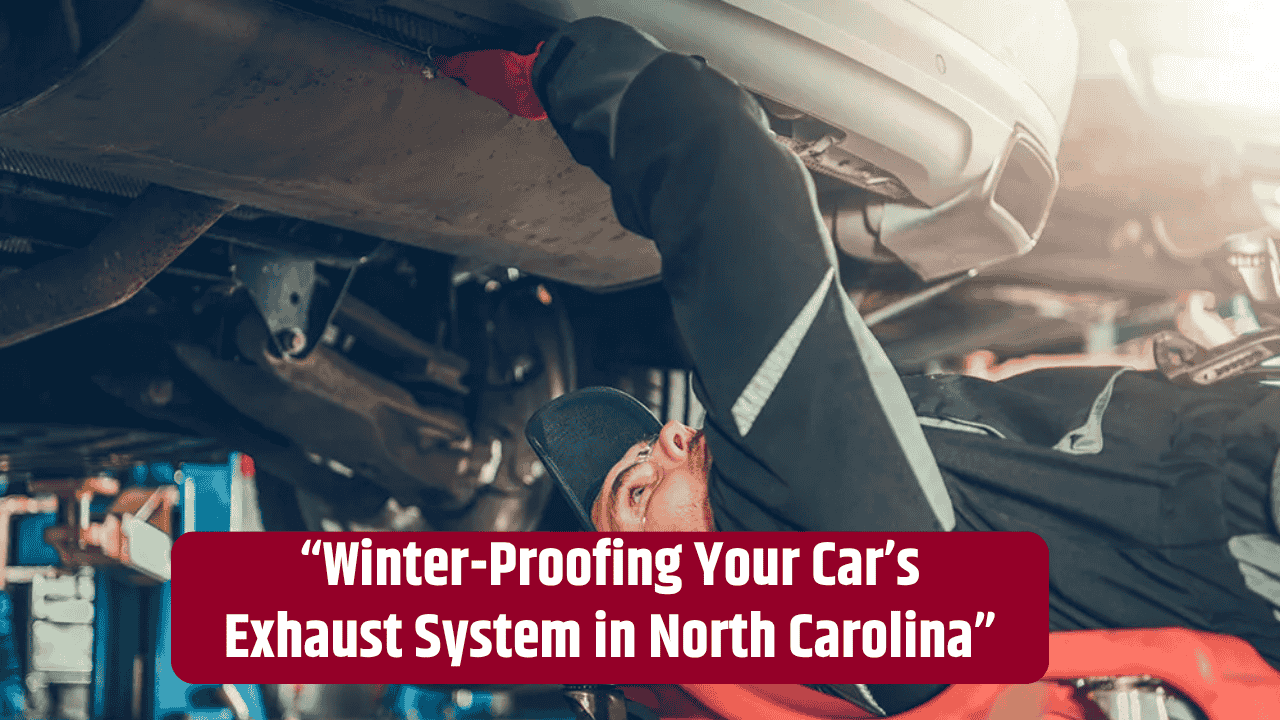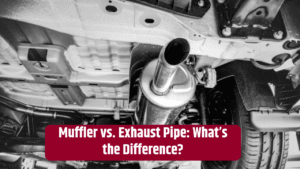Preparing your car for winter isn’t just about snow tires and antifreeze—it’s also about ensuring your exhaust system is ready to handle colder temperatures, especially in a state like North Carolina. While the winters here are milder compared to northern states, fluctuating temperatures, moisture, and occasional snow can still take a toll on your car’s undercarriage, including the exhaust.
Why Your Exhaust System Matters in Winter
Your car’s exhaust system is responsible for directing harmful gases away from the engine and the cabin, reducing emissions, and improving fuel efficiency. Cold weather can cause metal components to contract, collect moisture, and corrode—leading to leaks or full-blown failures.
In North Carolina, where winter often includes cold rains, icy mornings, and salted roads in mountain regions, these issues are especially relevant.
Common Winter Threats to Your Exhaust System
Here are some common issues your exhaust system might face during the winter months:
| Problem | Cause | Result |
|---|---|---|
| Rust and Corrosion | Road salt and moisture | Holes, leaks, weakened structure |
| Condensation Buildup | Short drives in cold temps | Water sits in pipes, causes rust |
| Cracked Components | Freezing and thawing cycles | Potential exhaust leaks |
| Loose Hangers | Ice or slush build-up, metal contraction | Exhaust pipe misalignment |
Winter-Proofing Tips for Your Exhaust System
1. Wash the Undercarriage Regularly
Even in North Carolina, salt and moisture can build up under your car, especially if you travel in higher elevations or after a rare snowfall. A regular undercarriage wash helps remove salt and grime that cause rust.
2. Inspect the System for Damage
Before and during the winter season, have your exhaust system checked for rust, loose components, or cracks. A professional inspection can catch minor issues before they become major problems.
3. Drive Long Enough to Evaporate Moisture
Short trips in cold weather can leave moisture sitting in the exhaust pipes. Driving for at least 20 minutes helps the system heat up enough to burn off excess condensation.
4. Avoid Piling Snow or Ice Around the Car
If snow or ice builds up under your vehicle, it can trap moisture against the exhaust system or even dislodge parts as it melts and refreezes.
5. Check for Unusual Sounds
Listen for hissing, rattling, or loud rumbling—these can be early warning signs of a compromised exhaust system.
When to See a Mechanic
If you notice a drop in fuel efficiency, a lingering smell of exhaust inside the vehicle, or strange noises while driving, it’s time to have a mechanic take a look. Catching an issue early can save hundreds in repair costs and keep your vehicle running safely all season long.
Even though North Carolina doesn’t face the harshest winters, protecting your car’s exhaust system is still a smart move. Moisture, road salt, and cold temperatures can create conditions that lead to long-term damage. A little preventive care can go a long way toward keeping your exhaust system—and your wallet—in good shape this winter.
FAQs
Is road salt really a problem in North Carolina?
Yes, especially in the western mountain regions. Even occasional use of salt on icy roads can cause corrosion if not washed off.
How often should I wash my car’s undercarriage in winter?
Once every two weeks if you drive in areas with road salt or slush. More frequently if you notice heavy buildup.
Can I winter-proof my exhaust system myself?
Basic steps like washing, listening for odd sounds, and longer drives can help. But for inspections or rust repair, a mechanic is recommended.
How do I know if my exhaust system has a leak?
Look out for a louder exhaust noise, a drop in fuel economy, or a strong smell of exhaust fumes.
Should I use rust-proofing spray on my exhaust system?
Some mechanics offer exhaust-specific coatings. Avoid DIY sprays unless they’re rated for high heat and automotive use.



